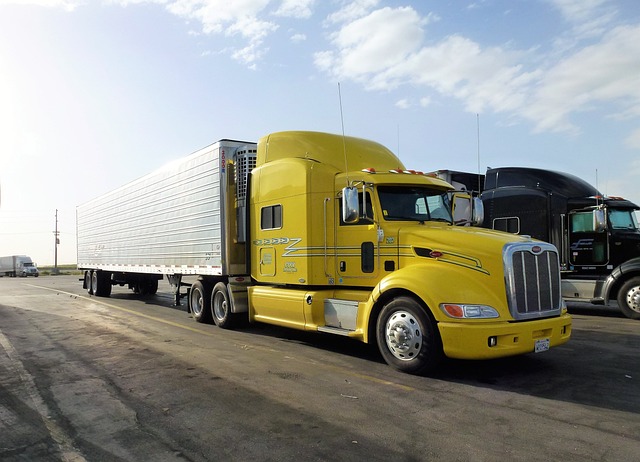Commercial vehicle insurance is not just a financial safeguard for businesses; it is also a legal obligation in most regions. Governments enforce specific requirements to ensure that businesses operating vehicles are financially responsible for potential accidents, property damage, and injuries. Understanding these legal requirements helps businesses remain compliant and avoid costly penalties.
Why Are Legal Requirements Necessary?
Legal requirements for commercial vehicle insurance exist to:
- Protect third parties from financial loss due to accidents involving commercial vehicles.
- Ensure businesses can cover the costs of damages or injuries caused by their operations.
- Promote road safety by encouraging responsible vehicle use and maintenance.
Key Legal Requirements for Commercial Vehicle Insurance
1. Minimum Liability Coverage
All commercial vehicle insurance policies must include liability coverage. This protects against claims for bodily injury and property damage caused by the insured vehicle.
- Bodily Injury Liability: Covers medical expenses and lost wages for injured third parties.
- Property Damage Liability: Pays for damages to another person’s property, such as vehicles or buildings.
2. Commercial Registration
Vehicles used for business purposes must be registered as commercial vehicles. This registration ensures they meet specific standards and are subject to appropriate regulations.
3. State and Federal Compliance
Legal requirements vary by jurisdiction, but common regulations include:
- State-mandated minimum liability limits.
- Federal requirements for businesses operating interstate, such as those set by the Federal Motor Carrier Safety Administration (FMCSA).
4. Proof of Insurance
Businesses must carry proof of insurance in their vehicles at all times. This document must include:
- Policyholder information
- Coverage details
- Effective and expiration dates
Failure to present proof of insurance during inspections or traffic stops can result in fines or penalties.
5. Specialized Coverage for High-Risk Operations
Certain industries, such as transportation and logistics, may require additional coverage, including:
- Cargo Insurance: Protects goods transported by the vehicle.
- Hazardous Materials Coverage: Required for vehicles carrying dangerous substances.
- Passenger Liability: Covers vehicles used to transport passengers, such as taxis or ride-share cars.
6. Uninsured Motorist Coverage
Some jurisdictions mandate uninsured or underinsured motorist coverage, which protects businesses if they are involved in an accident with a driver who lacks sufficient insurance.
7. Workplace Safety Compliance
Businesses must comply with workplace safety regulations, including maintaining vehicles in good working condition and ensuring drivers have proper training and licenses.
Consequences of Non-Compliance
Failing to meet legal requirements for commercial vehicle insurance can result in:
- Fines and Penalties: Significant financial penalties for operating without proper insurance.
- License Suspension: Suspension of commercial vehicle registrations or business licenses.
- Lawsuits: Increased liability exposure in the event of an accident.
- Operational Delays: Vehicles may be impounded until proof of insurance is provided.
How to Ensure Compliance
1. Understand Local Laws
Familiarize yourself with the specific insurance requirements in your state or region. If your business operates across state lines, ensure compliance with federal regulations as well.
2. Choose the Right Insurance Provider
Work with an insurance provider experienced in commercial policies. They can help you navigate legal requirements and ensure your policy meets all necessary standards. For guidance, check out What Should You Look for When Choosing a Commercial Vehicle Insurance Provider?.
3. Maintain Accurate Records
Keep detailed records of your insurance policies, vehicle registrations, and driver certifications. These documents are essential for inspections and audits.
4. Regularly Review Your Policy
As your business grows or changes, update your insurance policy to reflect new vehicles, drivers, or operational risks. This ensures continuous compliance with legal requirements.
5. Implement Safety Programs
Develop training programs for drivers and maintenance protocols for vehicles. Safe practices reduce accidents and claims, keeping your business compliant and premiums affordable.
Real-Life Example: Ensuring Compliance
A logistics company operating across multiple states faced a fine for failing to meet FMCSA requirements for interstate operations. After consulting with their insurance provider, they updated their policy to include higher liability limits and cargo coverage. This not only resolved their compliance issues but also provided better protection for their operations.
Final Thoughts
Meeting the legal requirements for commercial vehicle insurance is essential for protecting your business and maintaining operational integrity. By understanding the regulations and working with a reliable insurance provider, you can ensure compliance while safeguarding your assets. For cost-saving tips on maintaining comprehensive coverage, visit How Can You Reduce the Cost of Commercial Vehicle Insurance?.



